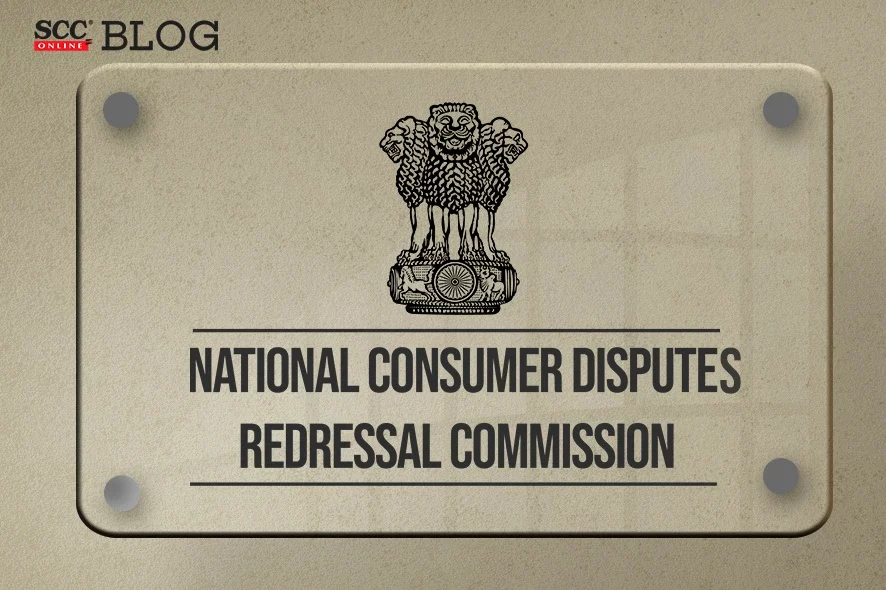National Consumer Disputes Redressal Commission (NCDRC): While considering the instant complaint filed under Section 21 of the Consumer Protection Act, 1986 for alleged medical negligence which resulted into death of the complainant’s son; the Bench of Dr S.M. Kantikar (Presiding Member)* was of the view that no sensible medical professional would intentionally commit an act or omission which would result in harm or injury to the patient, since their professional reputation would be at stake. “A single failure or lapse may cost them dear”.
Background: The complainant’s son met with a road accident and suffered multiple injuries to the head, face, and eyes. He initially was treated at Jabalpur Hospital from 26-11-2015 to 24-12-2015 and underwent various surgeries. On 29/30-01-2016 the complainant and his wife approached the Centre for Sight at Hyderabad for the treatment of their son’s mild disfigurement of the right eye lower lid. The doctors after examination of the patient suggested treatment plan for lateral tarsorrhaphy. On 17-03-2016, the patient underwent the Oculoplasty surgery under General Anaesthesia (GA). However, the patient unfortunately passed away after the operation.
Contentions: The complainant alleged that the opposite parties behaved negligently. It was stated that the opposite parties did not do Pre-anaesthetic checkup (PAC) nor any physician examined the patient. There were allegations vis-à-vis unavailability of basic lifesaving facilities, well equipped ICU and absence of cardiologist and that the opposite parties were interested in the financial gain rather the patient care. The complainant also alleged that most of the eye surgeries are performed under local anaesthesia, thus the decision to perform the surgery under GA was rash and negligent. Furthermore, the opposite parties refused to disclose the cause of death but mentioned cardiac arrest and issued the Death Certificate after nine months.
Per-contra, the opposite parties, denied the allegations of medical negligence stating that they are qualified professionals and have strictly adhered to all requisite norms and regulations while treating the patient. It was further stated that the details of treatment were discussed with the patient and complainant thus it was not merely verbal but the informed consent for the surgical procedure and General Anaesthesia (GA), were signed by both the complainant and his son.
Commission’s Assessment: Perusing the facts and contentions, the Commission stated the following-
The Commission stated that the complainant being an ophthalmologist himself, was in a better position to understand the treatment plan. The severity and side effects of treatment were clearly explained at every step. Perusing the consent form, the Commission did not find any deviation from standard of practice. It was further noted that the consent form comprised of all ingredients of an informed consent (BRAND) – explaining the B enefits, R isks of treatment, A lternatives or N o treatment and its proper D ocumentation with signature of parties.
The Commission also pointed out the complainant himself was insisting upon surgery be conducted at the earliest. The Commission noted that based on clinical evaluation and examination, the treating doctors were of the opinion that complainant’s son had poor mouth opening and a difficult airway; therefore, in the meantime he could undergo the minor procedure as scheduled on 30-01-2016, and then he would need further evaluation and then reassessment for general anaesthesia fitness before correction of cicatricial ectropion with skin grafting after 6-8 weeks as planned. The patient was re-examined and evaluated on 17-03-2016 for GA and was found to be fit for the surgery which was then proceeded with. Thus, the Commission was of the view that the treating doctors were not in any haste or hurry to conduct surgery.
The Commission also pointed out that general anaesthesia was the choice of treatment. Furthermore, the Commission noted that CCTV footage evidence clearly showed that reversal and recovery were unhurried, and the patient was shifted from the OT to the recovery room only after complete recovery. It was also pointed out that surgery was uneventful, and the patient was shifted to the recovery room in stable condition. However, when his condition worsened, the treating doctor attended the patient immediately to administer CPR and Defibrillation, along with making referral arrangements thereafter.
The patient was shifted to Apollo Hospital as a tertiary centre, but the complainant’s presumption that it was done to escape the liability. However, the Commission did not find any merit in the argument as referring the patient to tertiary care facility is not negligence.
The Commission stated that the complainant, being an ophthalmologist himself, was aware of the facilities, standard protocols and understood the treatment plan with potential side effects. He accepted the treatment plan, including surgery under general anaesthesia after discussion with the opposite parties. It was also pointed out that the complainant concealed crucial facts and documentation, including the post-mortem report and the signature page of the consent form for anaesthesia.
Furthermore, the Commission perused the observations of the expert committee constituted on the directions of the Director of Medical Education, Government of Telangana, comprising of professors of Ophthalmology and Anaesthesiology, wherein they noted that Despite prompt response and the application of life-saving measures, the patient had a sudden cardiac arrest.
The Commission was of the view that the complainant has failed to discharge his burden of proof, and the unfortunate death of his son does not amount to medical negligence. The complaint was dismissed, and the opposite parties did not incur any liability.
[Shabir Hussain v. Centre For Sight, 2023 SCC OnLine NCDRC 190, decided on 09-06-2023]
*Order by Dr S.M. Kantikar (Presiding Member)
Advocates who appeared in this case :
For the Complainant: Vishal Kumar, Advocate; Shivam Srivastav, Advocate;
For the Opp. Parties: Abhinav Bhalla, Advocate for OP-1 & 2; S. Yashwant Prasad, Advocate & Akash Tandon, Advocate for OP-3 to 5; OP-3 in person.






